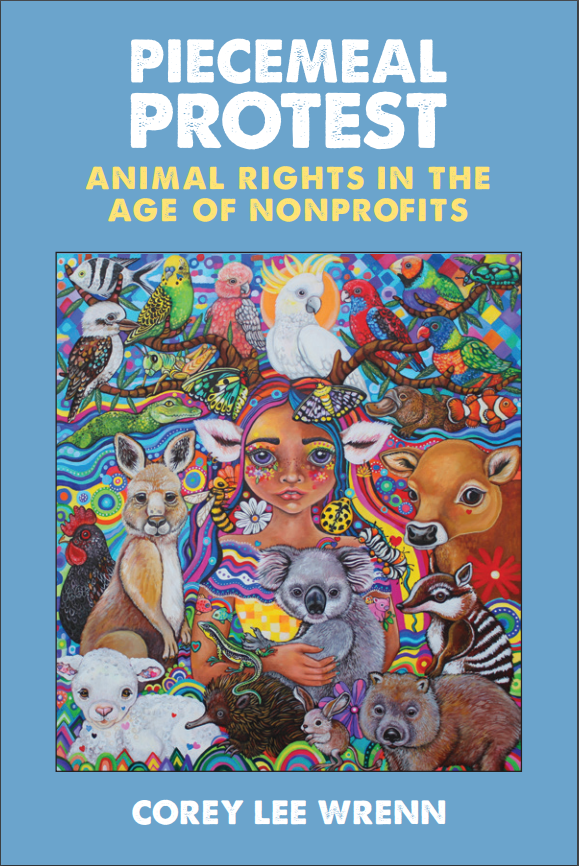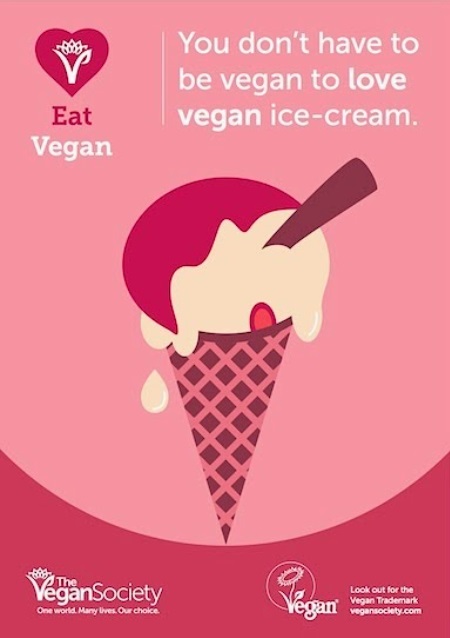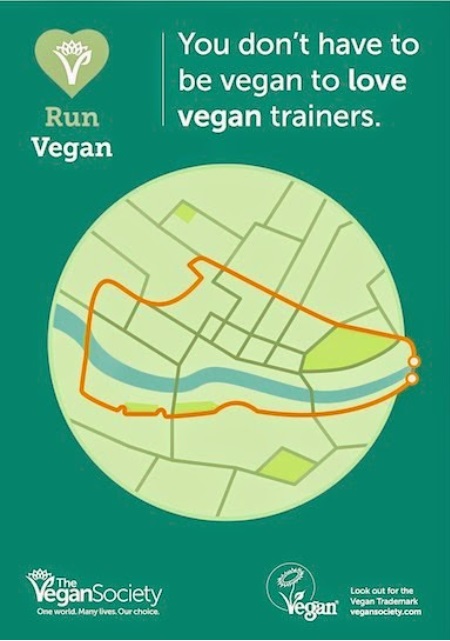In 2013, The Vegan Society launched its “Love Vegan” campaign adopting the reducetarian logic now popular among professionalized Nonhuman Animal rights organizations. Although the campaign has since been retired, it offers an important case study in modern vegan politics.
Once framed by the society as a key political protest, veganism is now framed as a pleasurable means of consumption:
Already, people have been getting in touch with us to say how much they love to eat vegan food and wear vegan lipstick, and (this is the best bit) how they’ll be thinking more about their shopping choices as a result of this campaign. Ka-ching! That’s what we like to hear.
The Vegan Society campaign announcement, since removed.
On the announcement of the new campaign, the society implored its readers to connect with a wider audience by sharing its associated “You don’t have to be vegan” posters on social media sites. Readers were also asked to donate or to become a paid member. The vegan labeling scheme, so important for assisting vegans in navigating a speciesist world and alerting nonvegans to problematic ingredients, is now a standard labeling scheme that creates added value and encourages sales.
Of course, The Vegan Society, like any nonprofit, has associated costs to account for, but fundraising all too easily compromises anti-speciesist claimsmaking. This phenomenon is, in fact, rather typical of other nonprofits in the Nonhuman Animal rights movement (and organizations from other movements as well). Activist collectives are typically pressured to enter the nonprofit system as a matter of survival, predictability, and risk reduction. This is bolstered by the capitalist notion that “bigger” is “better” and increasing bureaucracy will increase effectiveness. The caveat, however, is that the fixation on organizational growth and a dependence on financial support necessitates the degeneration of social change goals. Radical vegan claimsmaking is not consistent with fundraising from wealthy and conservative donors and foundations.
Veganism is a threatening concept for those monied institutions which benefit from exploitation and support the third sector. “You don’t have to be vegan” is a means of depoliticizing veganism while also positioning it as congruent with consumerism favorable to capitalism.
Of course, veganism is unique as a corporatized protest because it is, ultimately, about what we consume. That much is unavoidable. However, framing veganism primarily as a fun and tasty consumer lifestyle detracts from its political and social justice foundations. The Vegan Society was formed to encourage the world to do right by other animals. Although early members did invest quite a bit of effort in devising vegan alternatives in an era in which plant-based milk and non-“leather” shoes were difficult to find, the goal was not to become peddlers of expensive vegan products.
Veganism began as a movement to end speciesism, but it is quickly devolving into marketing label scheme to increase sales and sustain nonprofits in the highly competitive third sector. The movement’s audience is no longer expected to transition to veganism or activism, but consumption instead.
 Readers can learn more about the social movement politics of Nonhuman Animal rights and veganism in my 2019 publication, Piecemeal Protest: Animal Rights in the Age of Nonprofits. The beautiful cover art for this text was created by vegan artist Lynda Bell and prints are available on her website, artbylyndabell.com.
Readers can learn more about the social movement politics of Nonhuman Animal rights and veganism in my 2019 publication, Piecemeal Protest: Animal Rights in the Age of Nonprofits. The beautiful cover art for this text was created by vegan artist Lynda Bell and prints are available on her website, artbylyndabell.com.
Receive research updates straight to your inbox by subscribing to my newsletter.

